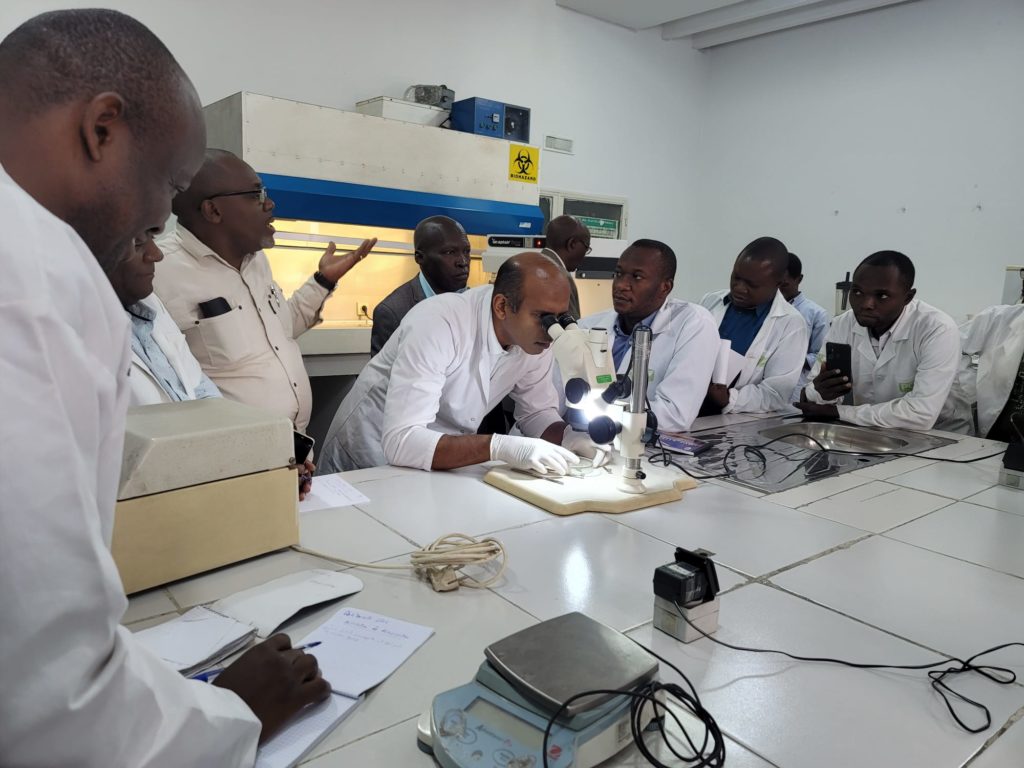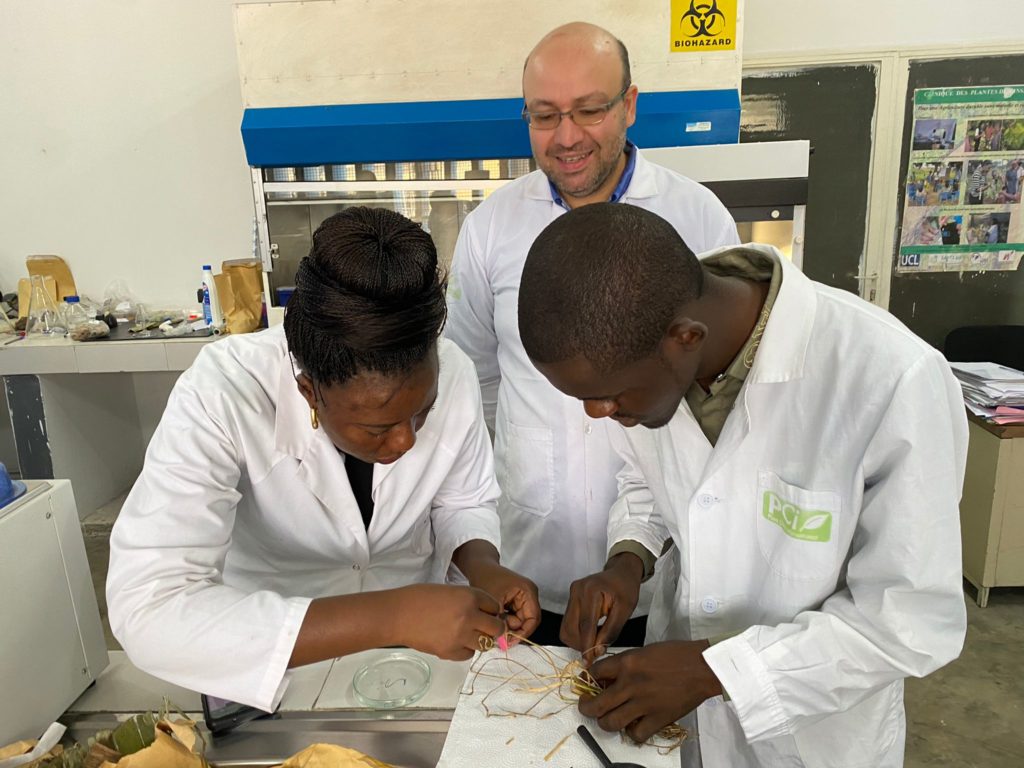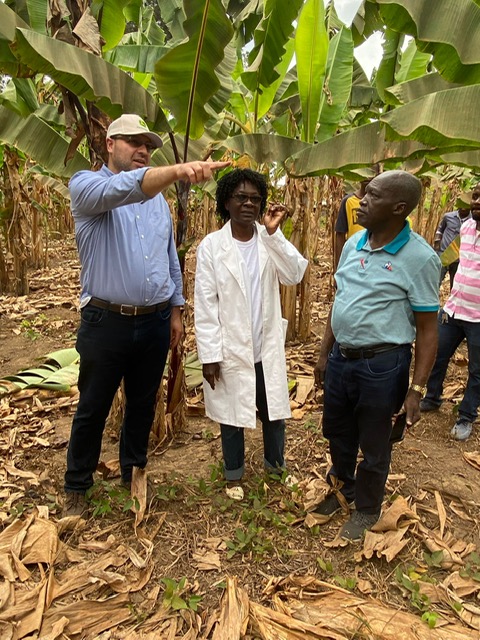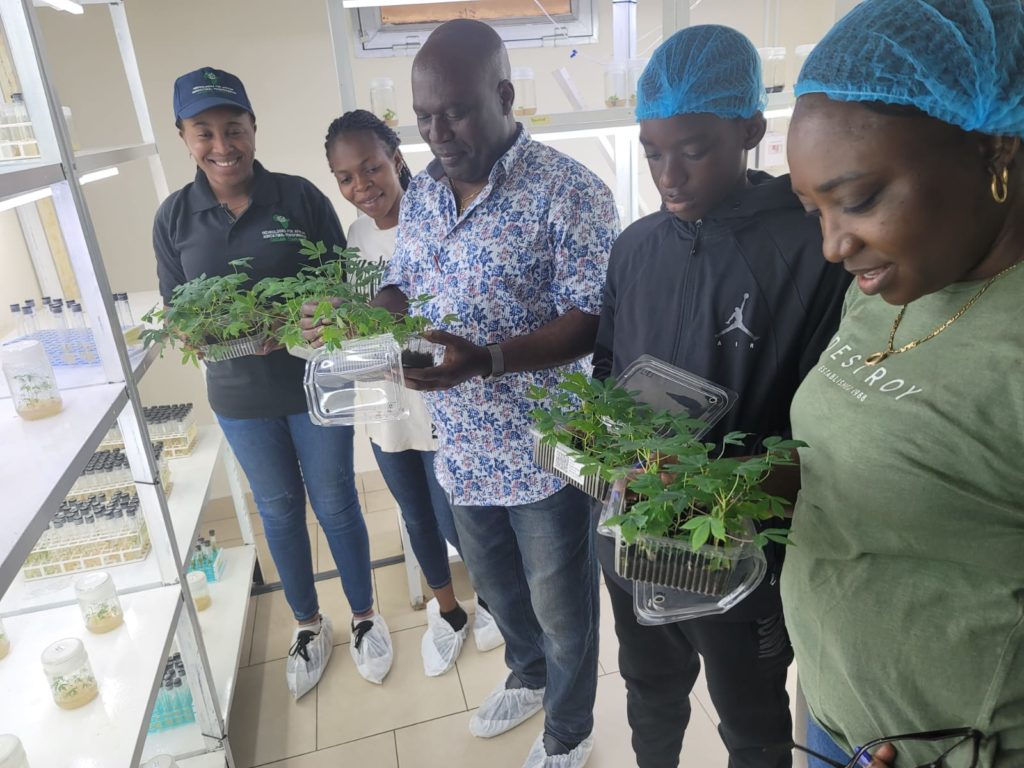UMES faculty in the Department of Agriculture, Food and Resource Sciences traveled to the city of Kinshasa, the capital of the Democratic Republic of Congo, over the summer and fall to conduct global food security training workshops, followed by hands-on activities in laboratories and at farm sites in the countryside. All were possible due to funding through the Center of Excellence for Global Food Security and Defense and a grant from the USAID Current and Emerging Threats to Crops Innovation Lab at Pennsylvania State University.

Sadanand Dhekney, a professor of plant breeding and biotechnology, presented “Techniques for Viral Pathogen Testing and In Vitro Culture for Large-Scale Propagation of Clean, Disease-Free Tropical Crop Species.” He trained 30 Congolese scientists from institutions, including the Plant Clinic International (pictured at left), the National Agricultural Study and Research Institute, the University of Kinshasa, the National Pedagogic University and the Ministry of Agriculture at the Plants Clinic Lab in Kinshasa.
“My interaction with the country’s agricultural scientists and stakeholders underscored a dire and critical need to establish a repository of local germplasm (National Clean Plants Network) for important asexually propagated crops in the Democratic Republic of Congo,” Dhekney said. His outreach efforts “were well-received and led to a better understanding of pests and plant disease detection, along with the necessity of using certified, disease-free planting materials.

Conveying an understanding of plant pathological problems facing agriculture, food safety and security in the country was the focus of Dr. Behnam Khatabi’s efforts there. The associate professor of plant pathology’s workshops and hands-on training covered banana, plantain and cassava diseases; cost-effective disease management tools for emerging plant pests and diseases; and isolating RNA and DNA from plants to identify bacterial and fungal pathogens from plant sources.
Khatabi set up a plant health workshop at the PCi lab (pictured at right), in addition to conducting brainstorming sessions with students, faculty and administrators from INERA and the Plant Health Clinic to develop plans for collaborative research in plant pathology and rapid detection methods of plant diseases. He also went on a farm tour organized by the INERA Mvuazi’s facilities to conduct disease detection, monitoring and control demonstrations in the field.

“During these visits (pictured at left), I was able to share my skills in plant disease diagnosis, as well as alternative management options to help prevent and manage plant diseases,” Khatabi said. “It was incredibly eye-opening to see first-hand the problems farmers were facing and to be able to help them fight crop losses by adopting new farming practices to boost their harvests and incomes. It was my first visit to Africa and I was glad to help train the next generation of plant pathologists.”

UMES’ associate director of the Center of Excellence for Global Food Security and Defense and professor of agricultural economics Dr. Stephan Tubene (pictured at right), at the suggestion of partnering agency the International Institute of Tropical Agriculture, visited newly-minted graduates of Kinshasa’s National Pedagogic University and a local community college to talk about issues surrounding food security and its future. The graduates are employed at the private farm in a suburb of the capital working on the project “In Vitro Culture for Large-Scale Propagation of Clean, Disease-Free Cassava,” and are being tested on their agricultural skills.
“From their comments during the visit, it was encouraging for a professor from the U.S. to take the time to visit and motivate them to continue their pursuit of a career in agriculture,” Tubene said. “If other students were interested in the field or if young unemployed Congolese made an effort to produce crops such as vegetables, maize or cassava, it would greatly help the country reduce food insecurity.”
Gail Stephens, agricultural communications, University of Maryland Eastern Shore, School of Agricultural and Natural Sciences, UMES Extension, gcstephens@umes.edu, 410-621-3850.
Photos submitted.

